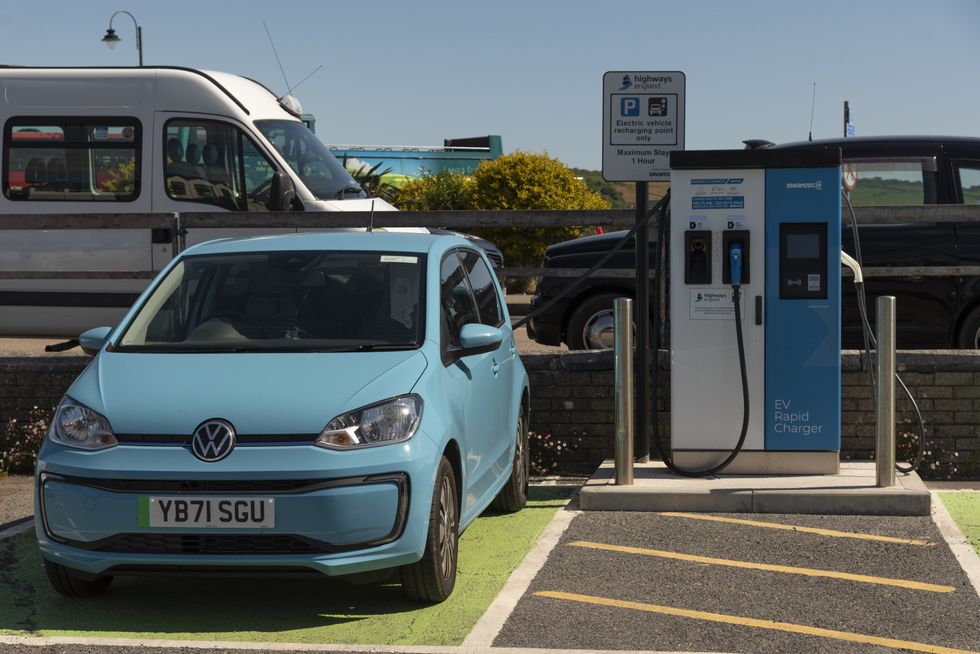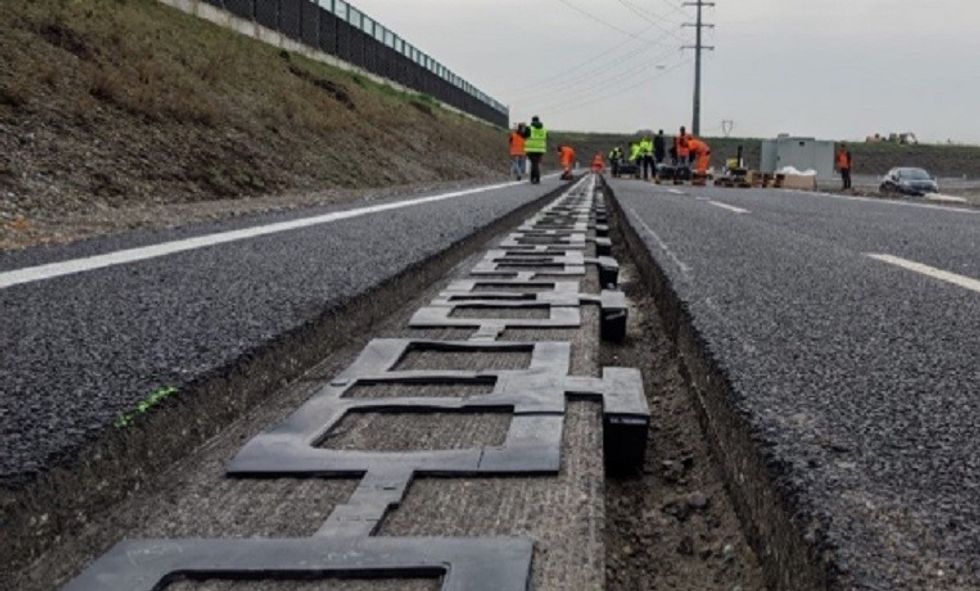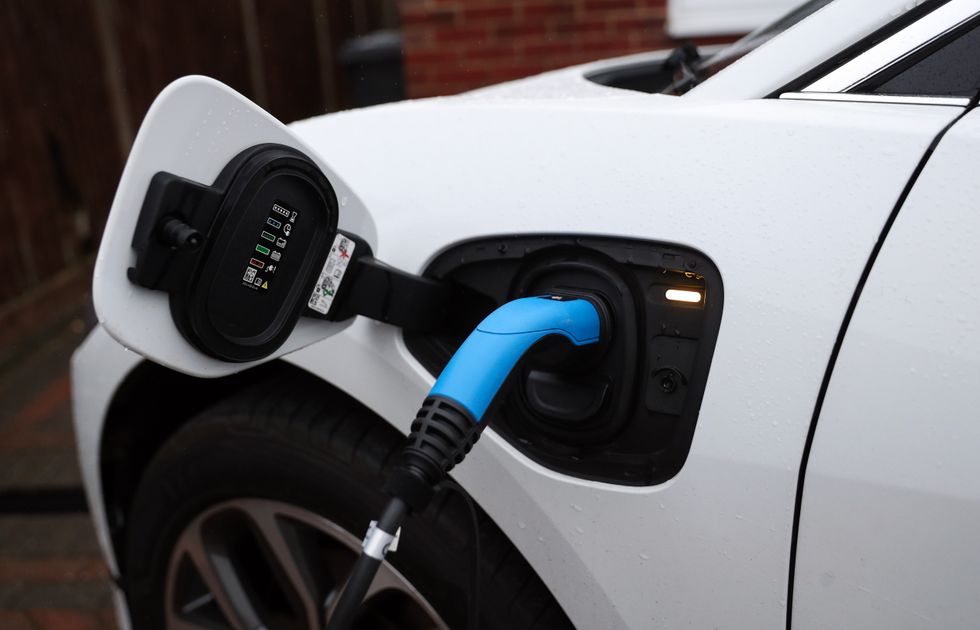The UK still needs to install 240,000 chargers by the end of the decade
Don't Miss
Most Read
Trending on GB News
A host of new electric vehicle charging breathroughs are being made in recent years with the aim of showing drivers how reliable they can be and easy it can be to charge.
Many brands have promised interested motorists lofty goals, telling them they'll be able to charge their vehicles from empty to full in just minutes, or removing the hassle from plugging them in.
While these ideas seem novel, it becomes glaringly obvious that more needs to be done to persuade drivers to invest in electric naturally, rather than showing them obscure methods of charging, even when it seems more far-fetched than practical.
StoreDot has quickly become one of the most interesting electric vehicle charging brands over the last few years, promising that its charging technology can ensure a vehicle goes from zero per cent charge to full in mere minutes.
Do you have a story you'd like to share? Get in touch by emailingmotoring@gbnews.uk

Experts continue to call for the installation of more electric vehicle chargers
GETTY
This is a very ambitious feat and would be absolutely critical to the future of electric vehicle uptake. And, so far, it has seemed to be a success for the Israeli company.
In partnership with Swedish EV manufacturer Polestar, StoreDot has showcased the world's first electric vehicle which can charge from 10 per cent to 80 per cent in less than 10 minutes through the use of Si-dominant cells.
The new Polestar 5 will come fitted with the company's XFC (extremely fast charging) technology, which would likely make the vehicle the fastest-charging EV available on the market by some margin.
Crucially, the brand has shown that the vehicle maintained a consistent charge rate in the testing process, with the battery not showing any evidence of overheating, showing that the longevity of the health of the battery could be extremely promising to potential buyers.
 The chargers are currently being trialled out on a section of Kenilworth Road in Coventry COVENTRY UNIVERSITY
The chargers are currently being trialled out on a section of Kenilworth Road in Coventry COVENTRY UNIVERSITYThe breakthrough of charging development comes around the same time as Coventry University helping with a larger project to ensure electric vehicles can charge as they continue to drive on a standard road.
While this currently sounds like a prime dream, as well as a logistical nightmare, the testing conducted by the university seems to show that changes to the road can help electric vehicles charge as they go - presenting a major opportunity to drivers concerned about range and battery life.
The project involves "dynamic wireless transfer technology" and sees metal coils fitted below the road surface recharge the EV batteries as they pass over and bill them for the energy consumed, and has been trialled on Kenilworth Road at its junction with the A45 in Coventry.
If such a scheme could be rolled out efficiently and for a low cost, it would undoubtedly be revolutionary. If every major road across the UK was equipped with such technology, cars could, in theory, drive forever without needing to stop, meaning motorists could skip plugging their cars in overnight or hanging around motorway service stations waiting to get above 80 per cent.

StoreDot says its technology can be 'easily deployed on today's infrastructure'
STOREDOTCoventry University seems to be at the forefront of charging evolution, having trialled other processes to allow waiting taxis and private hire vehicles to wirelessly charge while they wait to pick passengers up without needing to get out and plug in.
The WiCET (Wireless Charging of Electric Taxis) project has been given more than £3million in funding from the Office for Zero Emission Vehicles and delivered through Innovate UK, and has allowed taxi drivers to charge from their rank.
This will benefit a smaller subsection of EV owners but it could make a huge difference to taxi drivers if it were to properly be rolled out, prompting more drivers to switch to EVs and slashing emissions at the same time.
Unique charging devices may play a particular role for certain usage, and in some instances, they can be highly effective. But will this really be a reality across the UK when electric vehicles are the norm? Wouldn't more on-street and home chargers be more helpful?
LATEST DEVELOPMENTS:

There are almost 60,000 EV chargers around the UK
PACurrent data from Zapmap, the UK's largest database of electric vehicle chargers, states that there are 59,590 devices and more than 90,000 connectors around the country, with this number constantly growing. In the last month alone, 2,300 new chargers were added to the database, with further data set to be released within days.
The Government's own research has found that almost 6,000 new chargers have been added between January 1 and April 1, an increase of 11 per cent, although this is still a far cry compared to the 300,000 charger estimate that was originally touted by the Department for Transport by the end of the decade.
If vehicle manufacturers, charge point operators and the Government are serious about pushing electric vehicles, they should invest money and resources into installing more chargers which benefit the many, not the few.
These technological advancements are incredibly impressive and should be taken forward by experts with the view of widespread use, but in the meantime, public chargers need to be rolled out to give drivers faith in electric.









